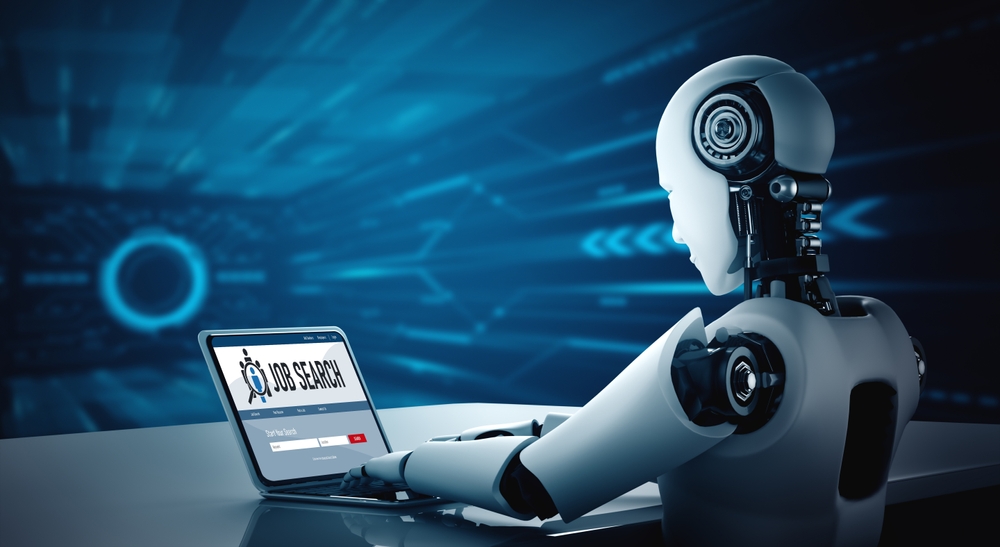
How AI May Change the Future of Tech
By Chris Drake
Artificial Intelligence (AI) is rapidly transforming various industries, and the tech industry is no exception. For job seekers, understanding these changes is crucial to staying competitive and prepared for the future job market. This article will explore how AI might affect job opportunities, skill requirements, and career development in the tech industry.

AI in Software Development
Ideation and Brainstorming
AI chat tools can help professionals in any industry research and explore their ideas to identify a specific solution approach or just to gain more education and insight into topics. In the technology and software industry specifically, chat tools such as ChatGPT, Codeium, TabNine, and others make excellent pair programming companions. Solution engineers, architects, and programmers alike can use these tools to discover ideas, technologies, programming techniques, and approaches they may not have otherwise considered and in far less time. This type of AI powered brainstorming can supercharge decision-making, training, and solutions. It is now more important than ever for professionals of any discipline to learn to ask more insightful questions to take advantage of the information that is now literally at their fingertips.
Automated Coding
One of the most significant impacts of AI in software development is automated coding. AI-powered tools can now write code faster and more efficiently than ever before. These tools analyze existing codebases, learn from them, and generate new code that meets specified requirements. For job seekers, this means that proficiency with AI tools and frameworks could become a valuable skill, complementing traditional coding abilities.
Project Management
AI has made huge strides in informing better decision-making in project management. AI tools can predict project timelines with greater accuracy by analyzing historical data and identifying potential bottlenecks and even assisting with more efficient assignment of tasks. Aspiring project managers should familiarize themselves with AI-driven project management software such as Asana, Trello, Jira Insights, and others to enhance their job prospects.
Will AI Replace Software Engineers?
A common concern is whether AI will replace software engineers. While AI can automate many repetitive tasks, it is unlikely to replace human engineers entirely. Instead, AI will augment their capabilities, allowing them to focus on more complex and creative aspects of software development. Job seekers should focus on developing skills that AI cannot easily replicate, such as problem-solving, creativity, and domain-specific knowledge. Job seekers will rarely be be prompted or allowed to use AI to write their code. Engineers still need to know how to write code manually, especially during the interview phase.

AI in IT Staffing
Recruitment
AI is transforming the recruitment process in IT staffing. Advanced algorithms can screen resumes and identify the best candidates based on specific criteria. For job seekers, this underscores the importance of optimizing resumes with relevant keywords and experiences to pass through AI screening systems effectively.
Training
AI can play a crucial role in employee training. Personalized training programs powered by AI can adapt to individual learning styles and progress, ensuring employees acquire the necessary skills more efficiently. Job seekers should be open to continuous learning and adaptability, as AI-driven training becomes more prevalent.
Ethical Issues
Bias
Despite its advantages, AI is not without ethical challenges. One major issue is bias in AI decisions. Algorithms can inadvertently perpetuate existing biases present in the data they are trained on. Also, it is important for job seekers to know that in technical interviews, they will rarely be prompted or allowed to use AI to write their code. Engineers still need to know how to write code manually, especially during the interview phase.
Privacy
Another critical concern is privacy. AI systems often require large amounts of personal data to function effectively. Job seekers should be cautious about sharing personal information and ensure that prospective employers adhere to robust data protection measures.
Conclusion
The potential of AI in the tech industry is immense, from automating coding tasks to revolutionizing recruitment and training processes. For job seekers, this means staying informed about AI trends, continuously updating skills, and being proactive in adapting to new technologies. Although there are some who are concerned about their careers in this changing technology landscape, fortune favors those who are prepared. Just like a carpenter choosing a nail gun over a traditional hammer, those who embrace this evolving new technology will gain a strong competitive advantage in an evolving job market.



